Even though I am typically focused on urbanist issues, the historical shakeup of the race for President cannot be ignored.
While I feel like Democrats underappreciate the importance of local politics that drives housing and transportation decisions throughout the country, national politics is still massively important for the urbanist agenda. And Democrats are almost universally superior to Republicans on every urbanist policy. The Biden-Harris administration has delivered record transit funding and pushed YIMBY policies. On the other hand, Trump pushed NIMBY rhetoric as president and Project 2025, the Republican gameplan if he is elected, calls for massively defunding transit and opposing the legalization of increased housing density.
The stakes for the presidential election are massive, and Kamala has a big choice to make: who to select as her VP candidate. While recent research suggests that the VP selection usually isn’t a huge gamechanger, there are three key areas of importance that still matter:
The home-state impact: VPs can drive up to a 3% swing in their home state according to recent research. Even though this sounds small, it reflects a game-changing margin in a swing state like Michigan or Pennsylvania.
Fitness to be President: The VP is just a heartbeat away from the presidency, and is also viewed as next-in-line for the presidency in the party, in the event the president is unable to run in a future election (e.g., Joe Biden, Kamala Harris, Al Gore, etc.)
Vibes: The aura of the VP helps define the presidential candidate. A VP candidate who forms a good team with the presidential candidate can create a halo effect for the whole ticket, as Obama/Biden did in 2008/2012. On the other hand, a poor VP pick can discredit the presidential candidate as Palin did for McCain in 2008 after countless embarrassing interviews (or JD Vance is doing right now).
Based on the above information, I have created a power ranking framework of the VP candidates. Note, this isn’t an exact science, but more a best-guesstimate based on the data we do have.
Ranking Criteria:
Electoral Impact (1-20): This is a largely objective assessment based primarily on the home-state impact, but also on how impressive an electoral record a candidate has based on their past elections and polling on popularity. I weight the electoral impact as being twice as important as every other criteria, because the fitness to be president is irrelevant if you lose the election. Just ask Tim Kaine.
Opportunity Cost (1-10): All of the VP candidates are talented politicians who would have to give up an existing position to serve as VP. If a swing seat Senator is elected VP and a special election flips the seat to Republicans, it could completely neuter a presidency. This is a largely objective assessment based on what would happen of the VP candidate vacated their current position
Fitness to be President (1-10): This is assessed for candidates based on their governing experience, policy chops, and age.
Vibes (1-10): This is a more subjective assessment based on how well the VP complements Kamala Harris, how good they are at campaigning and on TV, and a certain je-ne-sais quoi.
Urbanism (up to +5 bonus): Because this is a blog on urban issues, I have to bring in candidates’ urbanist policies wherever possible!
Let’s start with the TOP TIER:
To be clear, all of the candidates in this top tier would be a great choice, and significantly better than JD Vance. Instead of parsing the nuanced differences too closely amongst this tier, I think that Kamala should pick whoever she has the best chemistry with and trusts the most.
Tim Walz (D) - Governor of Minnesota
Electoral impact: 14/20
Walz has an extremely strong track record, holding down a Trump-supporting congressional seat and then winning two gubernatorial elections with strong margins. While Minnesota isn’t a true swing state, as it is a few points bluer than the true toss-up states, his popularity in the state may provide a small boost in similar Midwest swing states such as Wisconsin and Michigan.
Opportunity Cost: 10/10
While Minnesota does not have term limits, meaning Walz could choose to run for a third term, his Lt. Gov, Peggy Flanagan is a popular progressive who could easily take over and benefit from incumbency when running for a full term in 2026. Additionally, because Democrats hold the State Senate here, the replacement Lt. Gov would also be a Democrat. No Pennsylvania-style issues here!
Fitness to be President: 9/10
Walz has an impressive track record as Governor, both compromising with Republican legislatures early on and then going full steam ahead on popular progressive policies after Democrats took the legislature in 2022, passing laws on climate, abortion rights, LGBT rights, education, paid family leave, and more. Walz is 60 years old as well, meaning he would still be fit to run for president in 2032, even if he would be a bit on the older side.
Vibes: 10/10
Walz is just incredibly likeable. He’s a veteran and former high-school teacher who is funny and great on TV. He would pair great with Kamala, and is a breath of fresh air in contrast to JD Vance’s extremely weird aura.
Urbanism: +4.5
Walz has been a big backer of public transit in Minnesota, supporting Minneapolis’ network with dedicated funding. However, Walz did not take a stance either way regarding a state housing bill that would have legalized more dense housing.
OVERALL: 47.5
Gretchen Whitmer (D) - Governor of Michigan
Electoral impact: 19/20
Whitmer represents a true swing state that could be a tipping point, and won by extremely impressive double-digit margins in 2018 and 2022 against a slightly deranged opponent. The only reason that Whitmer gets 19 points out of 20 is that Michigan only has 15 electoral votes compared to Pennsylvania’s 19 votes, making the prize slightly smaller. A recent poll suggests that picking Whitmer could give Kamala a 2-3 point boost in Michigan, which could swing the state to Kamala’s corner.
Opportunity Cost: 9/10
Whitmer is term limited in 2026 and her Lt. Gov, Garlin Gilchrist, seems like a solid replacement. However, it could cause some down-ballot chaos in Detroit.
Fitness to be President: 10/10
Whitmer has been a legislative dynamo, similar to Walz, who has experience both compromising with a divided legislature and passing progressive legislation with a slim legislative majority. She is also a spry 52, meaning she would undoubtedly be young enough to run for President on her own in the future.
Vibes: 9?/10
Gretchen Whitmer is popular, and even has a song dedicated to “Big Gretch” as she is commonly known. Additionally, while some have suggested that Kamala should pick a man for her running mate, I think that having two women would draw a strong contrast from the toxic masculinity of the Trump/Vance ticket and raise the saliency of abortion rights. However, there’s a question mark here because Whitmer has claimed she has no interest in running for VP, and it’s not clear if she would say yes if Kamala offered her the role.
Urbanism: TBD
Representing the home state of major auto manufacturers, Whitmer’s transportation policy is unsurprisingly more focused on EVs than mass transit. However, a recent bipartisan bill that would significantly boost transit funding will hopefully make it to her desk this year. If Whitmer forcefully supports this bill, I will give her a few bonus points!
OVERALL: 47
Roy Cooper (D) - Governor of North Carolina
Electoral impact: 18/20
Like Pennsylvania, North Carolina is a swing state, meaning that the electoral boost from Cooper is important. However, because North Carolina is a bit redder than the true toss-up states, the value is a bit diminished (basically, if Democrats are 50/50 in NC, odds are they’re winning by a large enough margin nationally that they’d win the electoral vote anyway). Nonetheless, Cooper would expand the map of true swing states and give Kamala another path to victory, which would be quite valuable. Additionally, Cooper has quite a strong track record in North Carolina, winning an upset in 2016 to unseat the sitting Governor even as Hillary lost by 4%, and then winning re-election with a comfortable 4.5% margin in 2020.
Opportunity Cost: 8/10
Cooper is term-limited and cannot run for re-election. His Lt. Gov is Mark Robinson, a deranged Republican with a history of anti-semitism who said he wants “to go back to the America where women couldn’t vote,” and is currently running for Governor. While Robinson temporarily assumes the powers of Governor when Cooper is out of state, many experts are not particularly worried this, and if anything, I think this would just highlight just how unhinged Robinson is, hurting his re-election campaign. The only other concern here is that Cooper could run for Senate in 2026, when he would be an extremely strong candidate to flip the seat. If he is serving as Veep, he wouldn’t be able to run.
Fitness to be President: 8/10
Cooper has done a masterful job of governing a state without any legislative majority and his signature achievement is getting enough Republicans to sign onto Medicaid expansion, which provided health insurance to hundreds of thousands of North Carolinians. However, the biggest ding against him is his age. Cooper is 67, and if he were to run in 2032, he would be 75, only a couple years younger than Biden was when he ran in 2020.
Vibes: 8/10
Roy Cooper is straight out of central casting for a politician. He comes off as honest, compassionate, and responsible. However, he’s not a particularly exciting speaker and doesn’t have the raw charisma to excite voters.
Urbanism: +3.5
North Carolina isn’t a massive transit hub with major cities that have developed mass transit networks. However, Cooper has been a huge backer of Amtrak and pushed for local governments to invest in public transit. Cooper’s investments in rail have paid off, as ridership has skyrocketed over the past couple years.
OVERALL: 45.5
Josh Shapiro (D) - Governor of Pennsylvania
Electoral impact: 20/20
Shapiro’s key appeal all comes down to how critical the state of Pennsylvania is in the electoral college. Pennsylvania was the “tipping point” state in 2020 and may be so again in 2024. Shapiro has an incredibly impressive electoral record in his home state, elected statewide to Attorney General in 2016 even as Democrats lost the Senate and Presidential race at the top of the ticket. Perhaps most impressively, he won the race for Governor in 2022 by a whopping 15 points. Even though he faced an incredibly weak, far-right candidate, that’s still a huge margin in a swing state, and Shapiro remains quite popular in PA. If Shapiro could boost Harris by just 2 or 3% in Pennsylvania, that would be a gamechanger and would massively boost her odds of winning the election.
Opportunity Cost: 7/10
Unlike North Carolina, Pennsylvania has a Democratic Lieutenant Governor, Austin Davis who would take over if Shapiro has to move to DC. However, the Lt. Governor seat would open up to the State Senate President Pro Tempore, a far-right Republican, who would have the tiebreaking vote in the State Senate and make it harder for the Democrats to flip the chamber.
Fitness to be President: 9/10
Shapiro was only elected Governor in 2022, meaning he only has one and a half years of executive experience at this point, less than many of the other options here. While he has done a great job at staying popular and working with a divided state legislature, he also had a bizarre about-face on school vouchers. Nonetheless, he is very young (for politics) at 51 and is well equipped to potentially serve as president.
Vibes: 7/10
Shapiro is very good on TV, with a calm, smooth demeanor leading some people to jokingly call him “Jewish Obama”. He also received national acclaim for his handling of the I-95 collapse, getting it rebuilt in less than two weeks. However, inconsistent stance on school vouchers, along with his strong pro-Israel stances could potentially bring divisive issues into the spotlight. Additionally, it’s basically an open secret that Shapiro wants to be president one day, which could lead to some backlash.
Urbanism: +2
We love to see that Shapiro has supported funding SEPTA, Philadelphia’s public transit agency. However, the recent budget deal had much less SEPTA funding than hoped for, disappointing many advocates and transit riders. And while Shapiro has generally supported housing investment, he hasn’t taken a strong stance either way on the systemic statewide action needed to repeal exclusionary zoning and tackle the housing shortage.
OVERALL: 45
Mark Kelly (D) - Arizona Senator
Electoral impact: 19/20
Like Shapiro, Kelly represents a swing state, and won by an impressive margin in 2022 against a slightly deranged opponent. Similar to Whitmer, Kelly gets 19 points compared to Shapiro’s 20 because Arizona only has 11 electoral votes compared to Pennsylvania’s 19. Still, the swing state boost here is a huge factor in Kelly’s favor.
Opportunity Cost: 4/10
This is the biggest source of hesitation with Kelly. His Senate seat doesn’t expire until 2028, and swing Senate seats are incredibly valuable. While the Democratic Governor, Katie Hobbs, would be able to appoint a replacement Senator in the short-term, the seat would still be up for a special election in 2026, which would likely be a difficult midterm election. There’s a non-zero possibility we end up with a Supreme Court Justice retiring or passing away in 2027, and Kamala Harris getting stuck in a Merrick Garland situation where she is unable to appoint a replacement Justice if Kelly is replaced with a Republican in 2026. One potential mitigating factor here is that Kelly has a twin (who is also an astronaut!) who would be a great appointment to fill his seat.
Fitness to be President: 9/10
Kelly has a limited political history, with three years in the Senate. However, by all accounts he is an effective Senator. Even though he is a more moderate senator who took conservative stances on a few issues such as the border and expanding oil drilling, this is likely a reflection of Arizona’s moderate political environment. Unlike, say, Sinema or Manchin, Kelly has never served as the impediment for major Democratic priorities and has already expressed a desire to move left on labor issues and would be a reliable supporter of Kamala’s agenda.
Vibes: 10/10
Kelly has an incredible personal story. First off, he is an astronaut. Everyone loves astronauts. Also, his wife is Gabby Giffords, the former congresswoman who survived a mass shooting and went on to become anti-gun violence advocate. Also, did I mention that he’s an astronaut?
Urbanism: +1
Arizona is not a state known for its urbanism, and Kelly hasn’t taken strong stances on many urbanist issues, but he has supported transit funding, which is good.
OVERALL: 43
Andy Beshear (D) - Governor of Kentucky
Electoral impact: 11/20
Governor Beshear has an impressive electoral record. He has been elected to statewide office of Kentucky, one of the reddest states in the country, three separate times, first to Attorney General, and then twice to Governor. He has done this due to his strong appeal to swing voters and moderate Republicans. However, the home state factor is irrelevant here because even a 10 point boost in Kentucky wouldn’t make the state competitive: Trump won it by 26 points in 2020. However, Kentucky does share some cultural elements with the Midwest and South, and Beshear’s electoral strength could move the needle a bit in swing states not too far from Kentucky like Pennsylvania, North Carolina, and Georgia. However, it is worth noting that some of his electoral prowess stems from the fact that his father also served as an extremely popular Kentucky Governor, and may not translate beyond the Bluegrass State.
Opportunity Cost: 10/10
Beshear is term-limited and therefore would be unable to run for office in 2027. Additionally, resigning would elevate his Lt. Governor, Jacqueline Coleman, to the governor’s office, giving her the benefit of incumbency and giving Democrats a fighting shot in the 2027 election. This one is a win-win.
Fitness to be President: 10/10
Beshear has served as a deft governor of a red state with a hostile legislature, masterfully handling COVID, compromising where necessary, and steadfastly defending liberal values. He didn’t shy away from defending abortion access and LGBT rights, and still managed to win re-election by an impressive 5 point margin. Beshear is also young, and would still only be 54 in 2032 if he wished to run for President himself down the road.
Vibes: 9/10
Beshear became a national icon during COVID, to the point where a meme page called “andy beshear memes for social distancing teens” racked up hundreds of thousands of followers. Additionally, Beshear is a calming, trustworthy presence - even my MAGA cousins in Kentucky think he’s a good guy. Beshear is a pick that would make everyone happy across the Democratic Party. The only point docked here is because he’s not a natural TV star, with a generally low-key demeanor.
Urbanism: +2
Look, Kentucky isn’t exactly an urbanist hotspot but even so, Beshear has actively supported public transit and Amtrak in a place where cars typically come first.
OVERALL: 42
Now, we move to the MIDDLE TIER.
While I may personally appreciate both of these options, the case for them as VP simply isn’t as strong. They wouldn’t be horrible picks, but they are Tim Kaine-level picks that may not hurt Harris but would fail to accomplish as much as the top-tier picks.
Pete Buttigieg (D) - Secretary of Transportation
Electoral impact: 8/20
The home-state element is more or less irrelevant for Pete, as Indiana is not a swing state. Additionally, Pete has a very limited electoral record, running his only statewide race when he was 28 years old in the 2010 red wave election and unsurprisingly getting blown out. However, Pete still gets some points here because he has extremely high name recognition, favorability, and polled slightly ahead of other Democrats as potential candidate.
Opportunity Cost: 10/10
Pete does not hold elected office, so this is more or less irrelevant. While there has been some speculation that Pete would run for Michigan Governor when Whitmer is term-limited in 2026, there is already a deep bench of potential strong candidates in Michigan, so this isn’t a big deal.
Fitness to be President: 9/10
While the biggest criticism of Pete in his 2020 election was his relative inexperience, his relatively scandal-free and competent four years as DOT secretary largely ameliorates this. Additionally, Pete is extremely young and would be a strong candidate down the road in the future.
Vibes: 9/10
Pete has done a great job on TV, making him one of the most effective Democratic surrogates around. He’s not afraid to go on Fox News and push back against right-wing nonsense. Additionally, serving as the first LGBT VP would be an exciting milestone. However, I deducted a point here just due to some lingering bitterness from the 2020 primary that could be resurfaced if he is selected.
Urbanism: +3.5
Pete has generally been good for urbanists as DOT Secretary, supporting active transportation and overseeing a significant increase in transit and rail funding relative to the Trump administration. Pete has done a great job with the rhetoric around urbanism and making our roads safer. However, Pete hasn’t used his power as DOT secretary to really move the needle on issues that matter. It’s been disappointing that he hasn’t spoken up about congestion pricing, failed to fix the “light truck” loophole, didn’t push back against wasteful highway expansions, and done nothing to address the US’s infrastructure delivery cost bloat. My overall grade for Pete would be a solid B. He hasn’t made things worse, but he has played it safe instead of being a bold leader fixing America’s transportation issues. As mayor of South Bend, Pete also pushed for urbanist policies to make the roads more safe and walkable, which is great.
OVERALL: 39.5
JB Pritzker (D) - Governor of Illinois
Electoral impact: 10/20
JB’s electoral record is not particularly impressive. In 2018, he flipped the governorship from a deeply unpopular Republican in a Democratic wave year, and while he comfortably held the seat in 2022, he won by a slightly smaller margin than Tammy Duckworth, who was running for Senate re-election the same year. Additionally, Illinois is not a swing state, although Pritzker might give a slight boost in other Midwest swing states like Wisconsin and Michigan. The reason I am still giving Pritzker 10 points here is because he’s rich. Really rich. With a net worth of $3.5 billion (he’s an heir to the Hyatt hotel empire), Pritzker could provide a massive injection of his own cash into the campaign, as candidates are not subject to fundraising limits with their own personal cash.
Opportunity Cost: 10/10
While Illinois does not have term limits, Pritzker’s Lt. Gov, Julianna Stratton, is also a Democrat. Illinois is broadly a safe Democratic state, meaning the opportunity cost of Pritzker leaving Illinois is minimal.
Fitness to be President: 9/10
Pritzker has six years leading one of the largest states in the country and has an extremely strong record of passing progressive legislation. However, similar to Walz, he is 59 years old, meaning he’d be a bit on the older side if he were to run on his own in 2032.
Vibes: 9/10
JB is quite charismatic and a natural on TV. Additionally, in a state known for corruption, JB’s administration has been impressively scandal-free.
Urbanism: +1
Pritzker has generally been supportive of Amtrak and Chicago’s transit network. However, the biggest issue in Chicago at the moment is that the head of the CTA is Dorval Carter, who has overseen a massive reduction in transit service and doesn’t even take transit himself. While Pritzker has expressed his concerns about Carter’s leadership, he should really be pushing harder for entirely new leadership and prioritizing the CTA. Additionally, Pritzker’s IDOT proposal for redesigning Chicago’s Lake Shore Drive is extremely disappointing and would prioritize cars over transit and pedestrians.
OVERALL: 39
The Bottom Tier
Either of these picks would be a big mistake. Thankfully, they seem to be towards the bottom of the list, where they belong. Still, it’s worth emphasizing how weak these picks would be.
Gina Raimondo (D) - Commerce Secretary and Former Governor of Rhode Island
Electoral impact: 1/20
Rhode Island is a safe blue state, surrounded by other safe blue states. Additionally, Raimondo’s electoral record is weak. In 2014, she barely won the governorship, only getting 41% of the vote in a 3-way race. In 2018, she won comfortably, but even so, she underperformed the Democrat running for Senate by a significant margin. She brings zero electoral juice to the table.
Opportunity Cost: 10/10
She’s in the cabinet, meaning that leaving her post as commerce secretary wouldn’t have any negative impacts more broadly.
Fitness to be President: 8/10
Raimondo had a few notable scandals as Rhode Island Governor that drove down her popularity to one of the lowest in the country. However, by most accounts she has been an effective Commerce Secretary, where she has played a pivotal role in negotiations on infrastructure, chip manufacturing, and AI.
Vibes: 7/10
Raimondo has undoubtedly become a stronger politician as Commerce Secretary, compared to her time as Rhode Island Governor. Still, she is relatively low-profile and wouldn’t be a particularly exciting or interesting pick.
Urbanism: 0
Raimondo gets a zero for fighting against improvements that would speed up trains on Amtrak’s Northeast Corridor.
OVERALL: 26
Phil Murphy (D) - Governor of New Jersey
Electoral impact: 0/20
Phil Murphy is the Governor of New Jersey, a safe blue state. However, his 2021 re-election campaign was a stunning failure, only winning the deep-blue state by 3% despite expectations that he would win comfortably. He is not particularly popular, and despite representing a much bluer state than Shapiro, Whitmer, or Cooper, Murphy is viewed less favorably than any of them.
Opportunity Cost: 10/10
The only upside of picking Murphy is that he wouldn’t be able to screw things up in New Jersey any more.
Fitness to be President: 0/10
Murphy has made headlines for his recent move to sign a bill reducing government transparency that will enable corruption in what is already an extremely corrupt state. He is a part of the NJ political machine whose leader was recently indicted. In a sense, he’s the anti-JB Pritzker. Murphy is also on the older side at 66, not that it really matters.
Vibes: 0/10
Murphy’s biggest embarrassment comes from when he tried to install his wife as Senator by pressuring local leaders to support his wife’s campaign. Despite putting his finger on the scale, his plan crashed and burned, with his wife dropping out after polling behind Andy Kim, who is by all accounts a great candidate and even better human being, who went viral for cleaning up the Capitol after January 6th.
Urbanism: -10
Murphy is a hypocrite who frequently talks about his climate policy, but his transportation policy is one of increasing emissions and traffic. Murphy is one of the most outspoken opponents of congestion pricing, leading a lawsuit against the proposal. Additionally, Murphy is wasting over $11 billion to widen the New Jersey turnpike, all while letting NJ Transit fall into a state of disrepair. Yikes.
OVERALL: ZERO. Thankfully, Murphy is not being seriously considered for the role as VP, but his allies, with their horrible political instincts, are floating his name anyway.
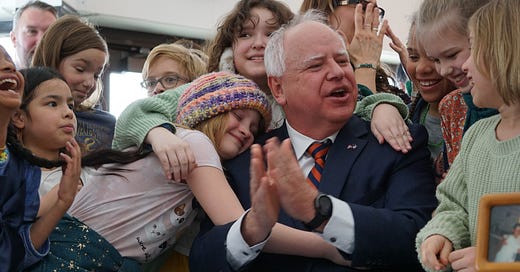



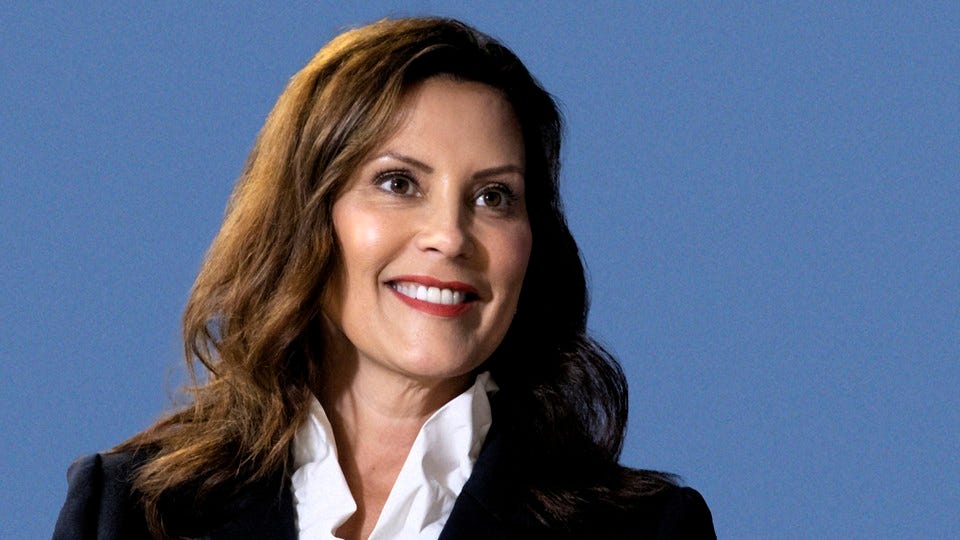
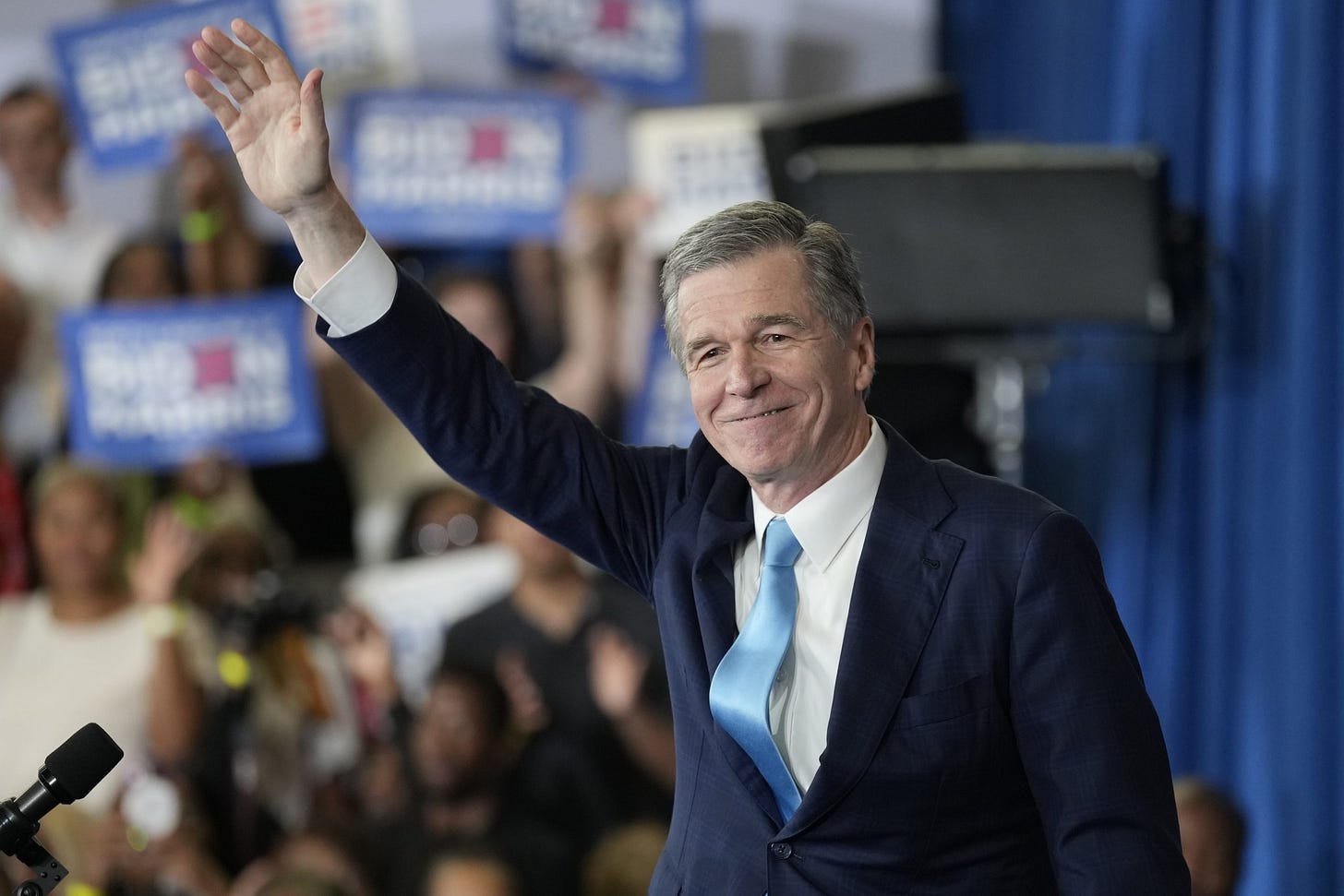
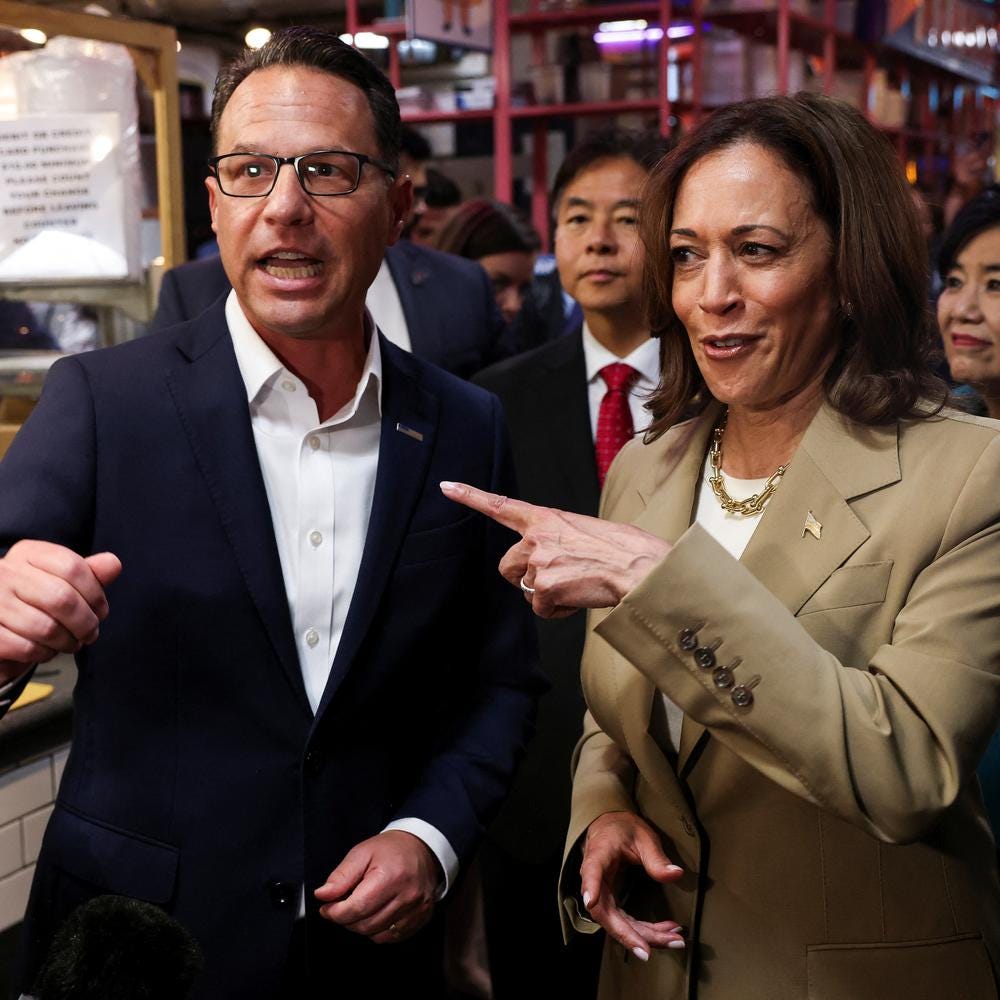

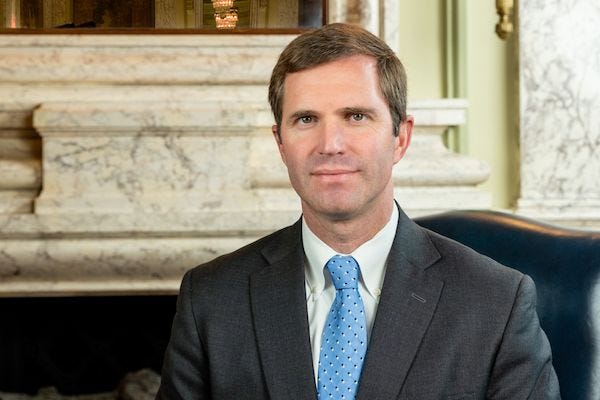
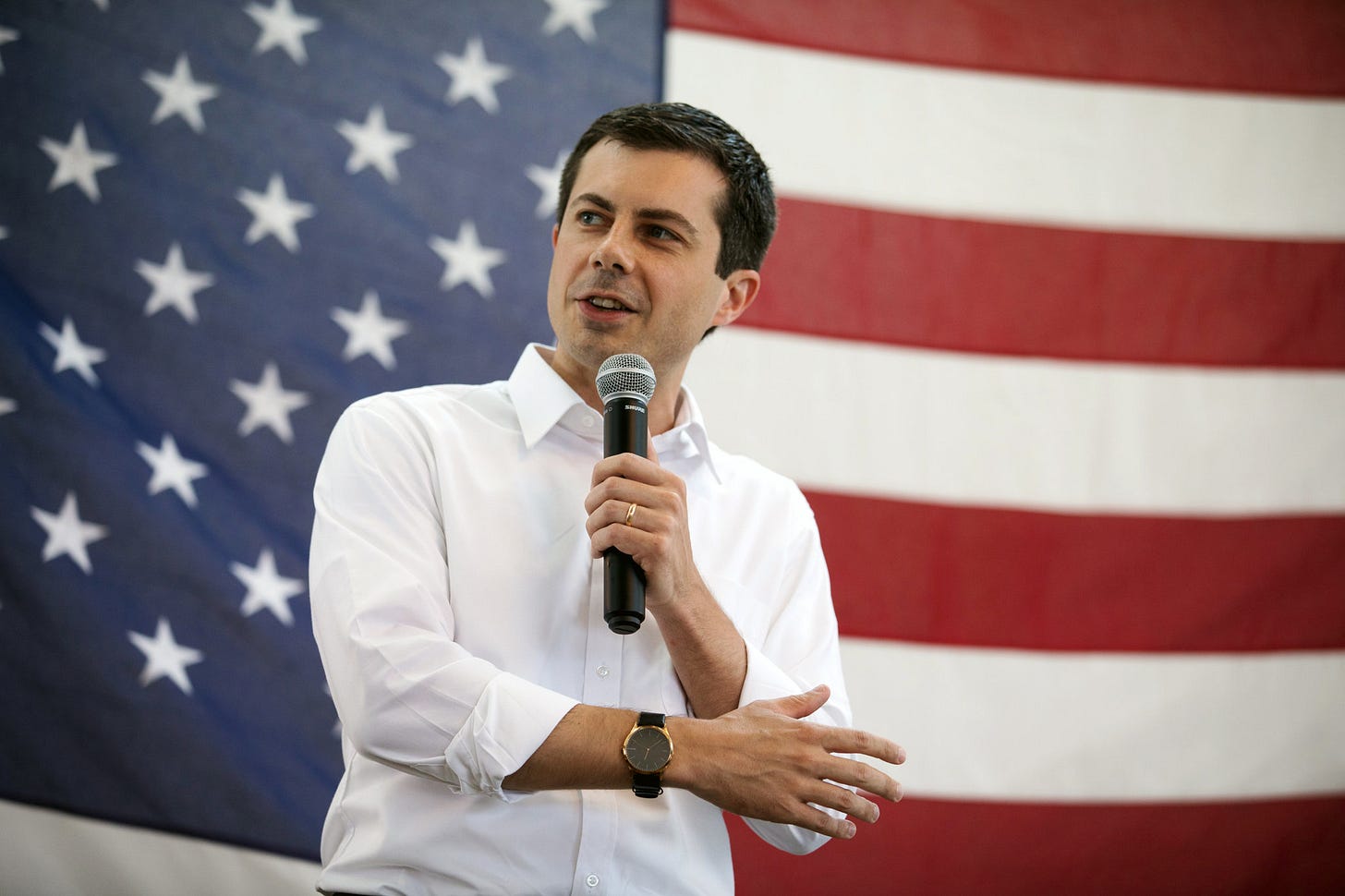

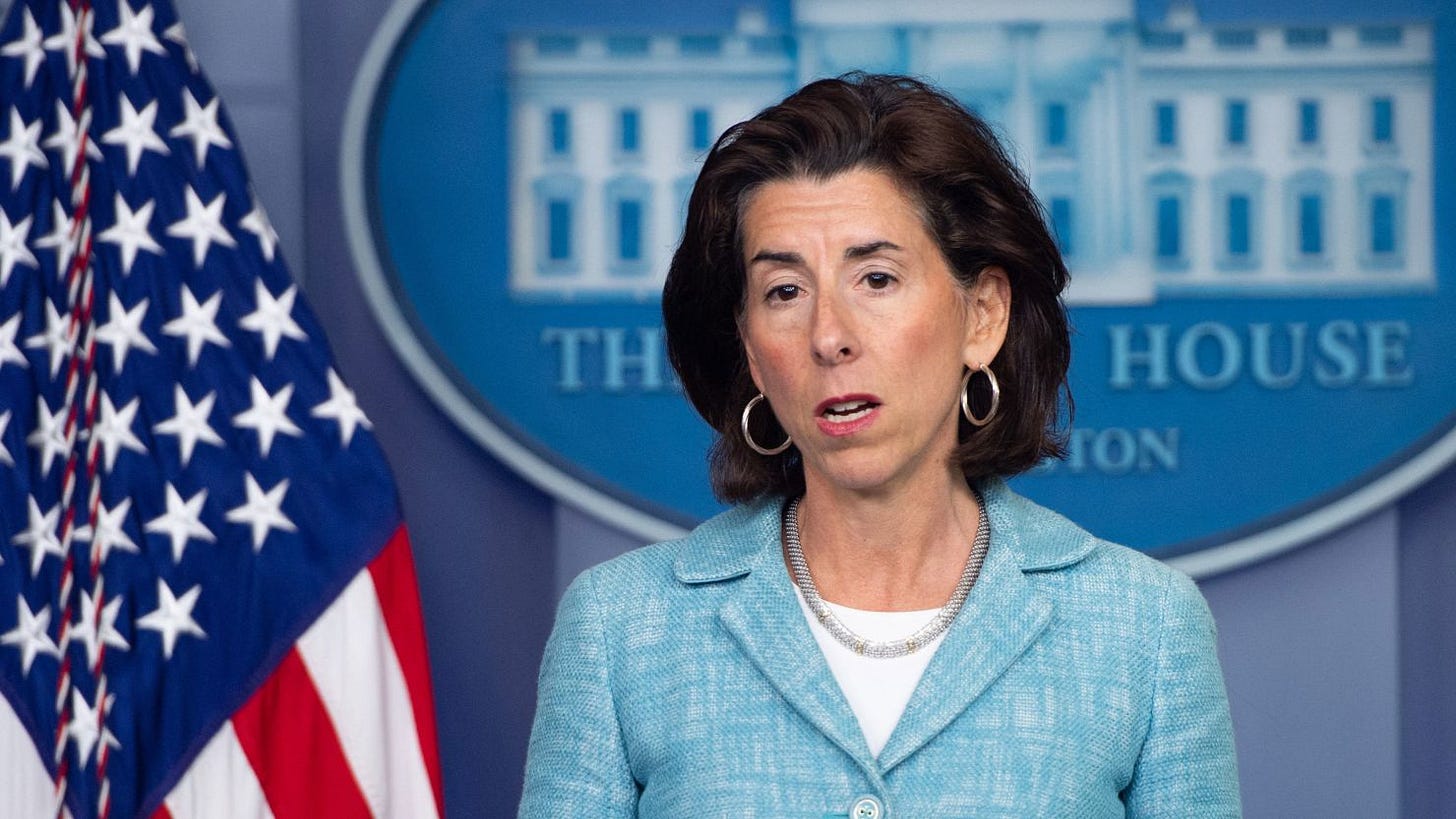
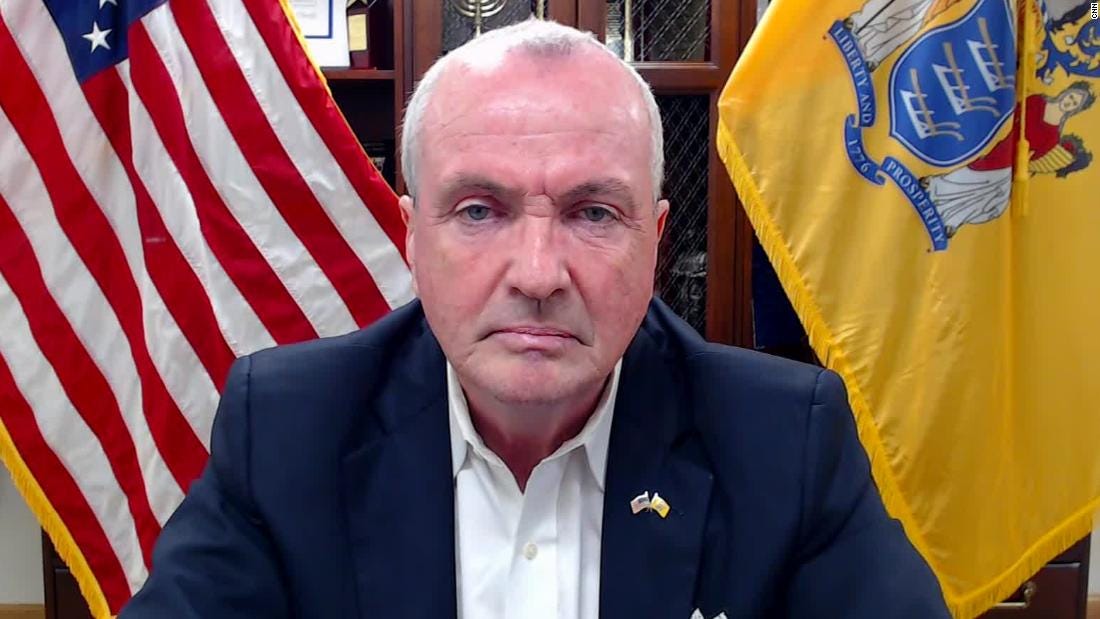
I was hoping you’d also score Burgum as a joke
Although I liked most of this, you might want to read Nate Silver's post suggesting that VPs don't help as much in their home state as you suggest. https://www.natesilver.net/p/could-josh-shapiro-win-kamala-harris